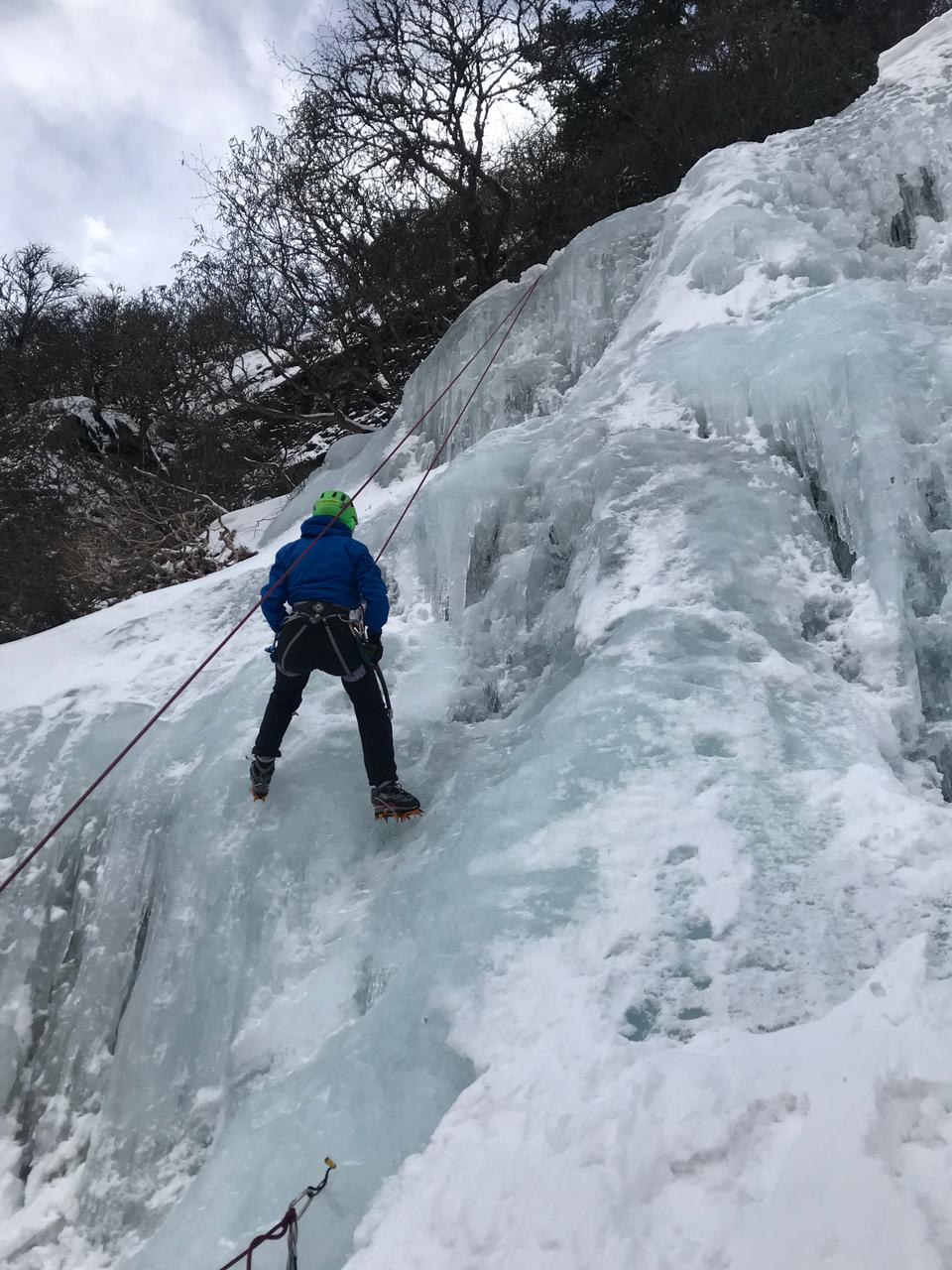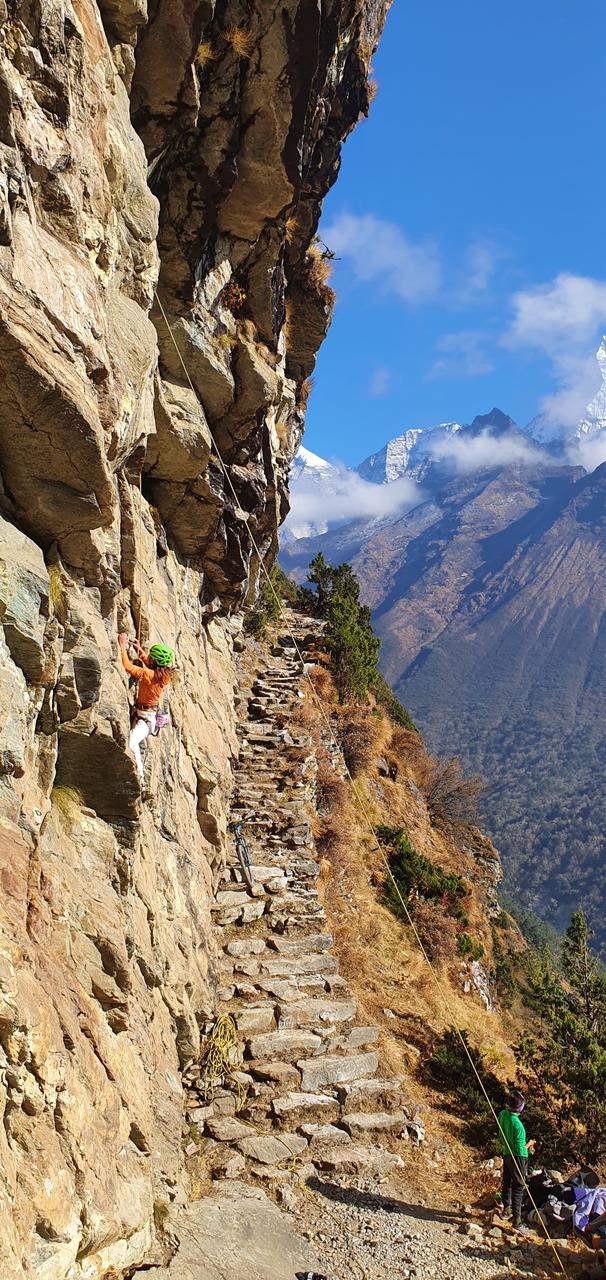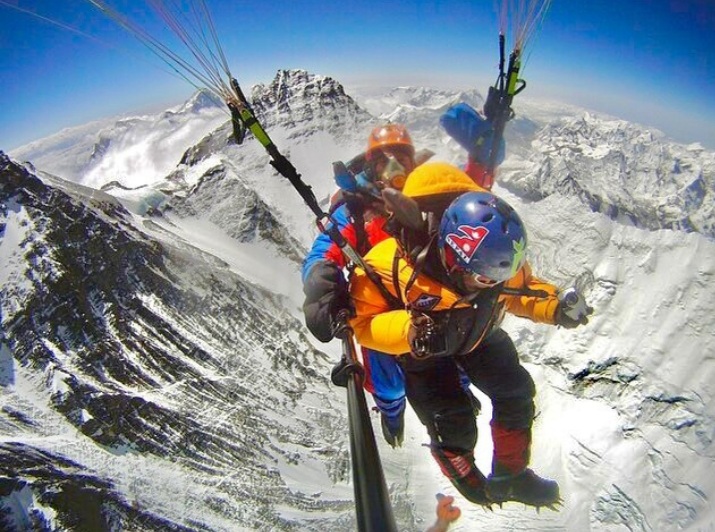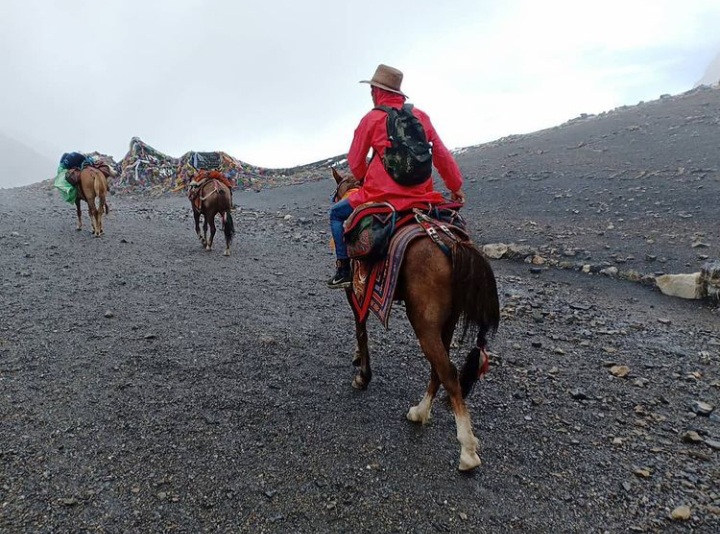Exploiting the full potential of adventure tourism in Nepal is a sure-shot way to prosperity for the country, provided that we just do not talk the talk but also walk the walk. That said, it’s good to see the local and provincial governments taking the initiatives of their own to promote tourism in their areas, especially after the country adopted federalism some five years ago.
Ever since opening its borders to foreigners in the 1950s, Nepal, with its magnificent and mighty mountains, scenic beauty, and adventure possibilities has been attracting thousands of tourists every year. In addition to unique natural sites and religious/cultural heritages, Nepal is known for adventure tourism, offering a range of products to all adrenaline enthusiasts. International tourists have been one of the main sources of the country’s foreign currency earnings so, to attract more of them, the country has been organizing promotional campaigns including Visit Nepal Years from time to time.
Tourism promotion campaigns would be organized mainly by the central government until a few years ago, but now it is encouraging to see that even provincial and local governments have taken initiatives to promote tourism in their areas with the country embracing a federal system of governance. Provincial and local governments are promoting tourism as they consider this as a means to provide employment opportunities and uplift the living standard of people.
Adventure tourism
Foreign tourists in Nepal usually would come to Nepal to either visit Nepal's natural/cultural sites or climb mountains until a few years ago. But this has changed lately as Nepal has grown to be one of the major destinations for adventure tourism. Adventure tourism is essentially an outdoor activity that is not easy and sometimes life-threatening, requiring people to have a specialized set of skills and good physique to overcome certain encounters while exploring or traveling knowingly into the unknown. Sano Babu Sunuwar, National Geographic Adventurer of the Year 2010, and founder of the first paragliding school in South-East Asia, says adventure is a form of activity that inspires and motivates one person to explore beyond their limits.
 Photo: Pasang Yangi Sherpa
Photo: Pasang Yangi Sherpa
Nepal is home to 3,310 peaks above 5500 meters. The government has opened 414 peaks for mountaineering, of which 71 remain unclimbed. The distinct geography of the country allows for many adventure possibilities. There are 10 national parks, three wildlife reserves, six conservation areas and one hunting reserve, an estimate of 6,000 rivers, and numerous lakes. Moreover, visitors can trek to various Himalayan regions of the country. Also, one of the famous and underrated adventure activities is to trek along the ‘Great Himalaya Trail’, which stretches from east to west of Nepal.
In 2020, Nepal was ranked 44th in the world’s best countries for adventure tourism by CEOWORLD MAGAZINE. The country offers various adventure activities including rock climbing, mountaineering, bungee jumping, rafting, trekking, ice climbing, mountain biking, paragliding, skydiving, and pilgrimage among various other activities. From the highest peaks of the Everest region to dense forests and rapid rivers in the plains of the Terai, Nepal has it all for every backpacker, adventure seekers, and adrenaline enthusiast.
Preeti Khatri: A trailblazer in adventure tourism

Nepal is home to eight of the 10 highest mountains in the world, drawing hundreds of climbers and trekkers who spend their money along the routes to the mountains contributing to the local economy. The country is also known as a great destination for trekkers, offering insights to the local culture along with adventure of trekking in the Himalayas. Some of the most popular treks in Nepal include the Everest Base Camp trek, Annapurna Base Camp or Circuit trek, Langtang trek, Manaslu trek, Dhaulagiri Circuit among others. Along with enjoying the stunning view of the natural beauty and the mountains, they can also indulge in the different cultures and ethnicities that reside in the small villages located along the way. Similarly, airsports activities including paragliding and skydiving are also a must-do for adventure enthusiasts who visit the country. Pokhara, known as the adventure hub of Nepal, provides one of the best places to paraglide, with a stunning view of mountains at front and the beautiful Fewa lake and Pokhara city beneath.
Bungee jumping attracts a large number of adventure seekers in Nepal. There are three bungee spots inside the country. They are located in Pokhara, Bhotekoshi and Kushma. The bungee in Kushma is the highest bungee in Nepal and second-highest in the whole world with a freefall of upto 228 meters. Apart from adventure activities in land and sky, the rivers of Nepal provide a very memorable experience for rafting and kayaking. The Trishuli, Bhotekoshi, Karnali, Sun Koshi and Marsyangdi rivers are among the popular destinations for white water rafting and kayaking. The activities are popular during the dry seasons of October and November. There are also various activities like mountain cycling, ice climbing, canyoning, favored by many thrill seekers visiting the country.
Huge potential
Tourism is considered a vehicle for socio-economic development and prosperity of Nepal because of its significant potential to earn foreign currency, create employment, reduce income and employment disparities, strengthen linkages among economic sectors, and help alleviate poverty. Adventure tourism is also one of the main factors for development in rural areas. The flow of tourists into the rural areas for adventure activities helps generate demand for employment, physical infrastructures and business for the local markets. Studies have suggested that a single tourist employs 12 people directly and indirectly. Over the years, adventure tourism has rapidly developed over the years in the country. With the introduction of new trekking routes, peaks, adventure sports and physical infrastructures to support tourism among others, the sector is expected to thrive in the years to come.
 Photo: Pasang Yangi Sherpa
Photo: Pasang Yangi Sherpa
Although a landlocked nation, Nepal's good relation with its two immediate neighbors - India and China - provides a huge opportunity to ensure growth of adventure tourism. The total population of China is over 1.4 billion while the population of India is nearly 1.4 billion. Studies have predicted that China is expected to become the world’s largest economy by 2030, surpassing the United States of America, while India is predicted to to become the third largest economy in the world by 2031. This means that there will be more people with disposable incomes to go out of their home countries as tourists. While Nepal and India have visa free regimes, Nepal has already decided to waive tourist visa fees for Chinese nationals entering Nepal to seize this potential.
Province and local governments in coordination with the Nepal Tourism Board (NTB) have been organizing promotional campaigns at the local level. The NTB in coordination with the provincial and local governments organized the Eastern Travel Mart 2022 in Province 1 in Dharan, Farwest Travel Mart 2022 in Dhangadhi of Sudurpaschim Province and Western Travel Mart 2022 in Nepalgunj. The events focused mainly on promoting Nepal’s adventure activities in coordination with tour operators from India and Nepal, vloggers, and media personnel to increase Indian tourists from the Indian states adjoining Nepal. The NTB had invited tour operators from Sikkim, West Bengal, Bihar, Assam, Lucknow, New Delhi, Uttarakhand and Dehradun, among other regions of India, to further promote Nepal’s tourism in these Indian states, according to Senior NTB Director Hikmat Singh.
As China has still imposed travel restrictions for their citizens, the NTB is currently focused on attracting Indian tourists as it may take a little more time for tourists from around the world to visit Nepal due to the lingering variants of COVID-19 and the ongoing war between Russia and Ukraine. Nepal is also looking toward Bangladesh and the domestic market to keep the tourism business afloat. Although most Indian nationals visit Nepal for religious and other purposes, the trend of Indian tourists participating in adventure activities has also increased lately. President of Nepal Association of Rafting Agencies (NARA) Ganga Prasad Nepal said that the trend of Indian nationals coming to indulge in activities related to rafting and kayaking has also increased significantly. “Although the number of tourists has been very low for two years after the outbreak of COVID-19, a significant number of Indian tourists have indulged in rafting and other river sports following the start of the New Year,” he said. As of April 11, a total of 30 Indian nationals have received permits to climb various mountains and peaks across the country this season.
Santa Bir Lama, a member of the Tourism Revival Committee formed by the government, argues that since Nepal’s geography ranges from just 70 meters to 8848.865 meters above sea level, it has the potential to attract tourists into the country all year round. The country has some of the most unique destinations in the world. Like Indonesia and Hongkong, Nepal can also attract over five million tourists a year, making significant improvement in the tourism economy as well as in the field of employment. Lama believes that there is a need for creating an investment-friendly environment in the tourism sector, proper marketing and strategic planning to accelerate its development.
President of the Trekking Agencies Association of Nepal (TAAN), Khum Bahadur Subedi says although Nepal has not been able to utilize its potential, improving policies and strategies of this sector can certainly be very beneficial for the country’s tourism industry in the near future. Tourism entrepreneurs in Nepal believe that about 80 percent of the tourists who visit the country come to indulge themselves in adventure and outdoor activities. NARA President Ganga Prasad Nepal believes that there is a need for creating an investment-friendly environment to further expand adventure activities in the country. If Nepal plays its cards right with its two giant neighbors, tourism is sure to flourish rapidly and in a sustainable manner, alleviating poverty in the rural areas, creating employment and improving the overall economy. However, the political, economic and security situation in the country have acted as major challenges the country has to overcome in order to boost adventure tourism.
“As the inflow of tourists starts to increase, many of them will indulge in adventure and outdoor related activities across the country. The increase in tourism activity helps to generate income and employment, positively affecting the country’s economy” says Director at Department of Tourism (DoT), Mohan Bahadur GC.
Challenges galore
There are several hurdles to realizing the true potential of adventure possibilities and outdoor activities in the country. Many tourist destinations face water shortage, and water and land pollution. The problem of solid waste management, lack of basic services, rescue services and lack skilled human resources are a few of the sector's major challenges, which have been further exacerbated by climate change in recent years, according to a sectoral report on tourism, natural and cultural heritage published by the Ministry of Forest and Environment. Furthermore, poor infrastructures such as limited road connectivity and poor quality of road and unreliable domestic air services raise costs and reduce value for tourists.
TAAN President Subedi also believes that climate change could be one of the major challenges for adventure tourism in Nepal. Stating that the mountaineering sector is facing difficulties in predicting the weather due to global warming and related issues, Subedi calls for efforts from an individual to administrative level to control climate change at the earliest. He also stresses the need for protecting and preserving the natural environment, the main attraction for adventure tourists. Mentioning that many trekking routes and trails have been lost in the course of building infrastructures in the name of development, he stressed the need for carrying out development projects focusing on the ways to mitigate negative impacts on the environment as well as tourism economy.
 Photo: @itssanobabusunuwar
Photo: @itssanobabusunuwar
“Our mountains have lost their snow. Many snow-capped mountains have lost their snow. There have been difficulties in predicting the weather as well. We must all focus on solving the issue at the earliest. There is also a need for coordination among the Ministry of Tourism, Ministry of Environment and Ministry of Transport, for the development of adventure tourism and the overall tourism sector without affecting the natural environment,” Subedi says.
Nepali adventurers, mountaineers and tourism workers have achieved a good name for themselves as well as the country. However, lack of policies and regulations are a major factor behind the slow growth of adventure tourism, lack of professionalism, unhealthy competition among tourism entrepreneurs, and lack of courses related to adventure tourism for interested students are also some of the main concerns that need to be addressed for a better adventure tourism economy, shared Sunuwar.
The trend of the new generation of Nepalis going abroad for employment and higher studies is also a threat to the development of tourism. "There are very few icefall doctors and mountaineering specialists today. What if there are no icefall doctors to lead the next generation in the mountains. The case is similar in other areas of tourism as well," Sunwar said. He was of the view that the government should further add education institutes with a course period of at least three years to professionally train the next generation of tourism entrepreneurs.
The persisting political instability in the country, lack of policies for tourism related activities, proper promotion of tourist destinations, hassle for permits, climate change, lack of study and research and lack of proper awareness programs have affected the growth of adventure tourism in the country. “A single tourist has to be issued permits over permits to visit just a few destinations. To further encourage tourism activities, the government bodies need to form a one-door policy for tourists. Likewise, the trend of Nepalis leaving the country for employment abroad has also affected the development of tourism in the country. There is a need for conducting awareness programs in rural areas to promote tourism activities,” Lama said.
Way ahead
Nepal is uniquely positioned to take benefit from adventure tourism given its majestic mountains, scenic beauty and adventure possibilities it offers to tourists looking for adventures. As the country has embraced the federal system of governance, provincial and local governments can take local initiatives to realize the huge potential of adventure tourism by making further investment in this sector. It is good to see that local and provincial governments are already doing something on their own to promote this sector in recent years. They can work in coordination with the agencies of the federal government to promote the private sector in this sector as well in order to make Nepal one of the best holiday destinations for tourists around the world. This will eventually help not only improve the livelihood of the people, but also improve the foreign currency reserves of the country.
 Photo: @garlic_soup
Photo: @garlic_soup



































